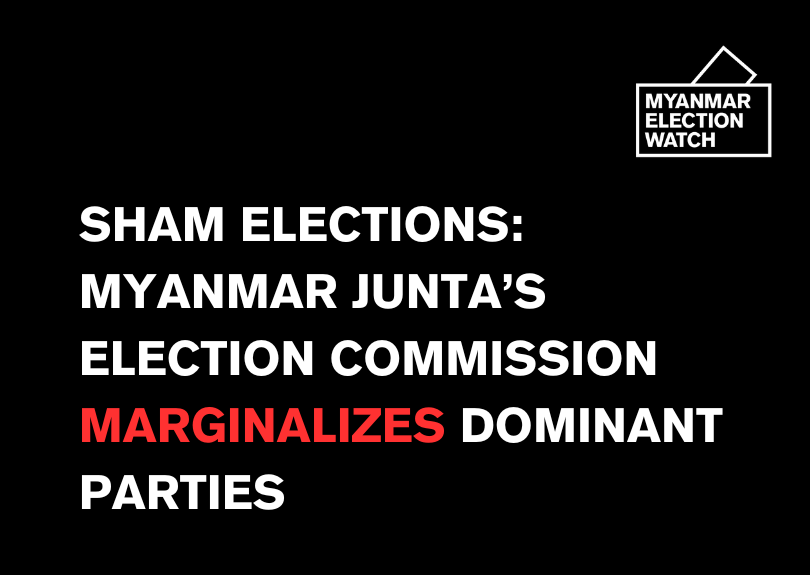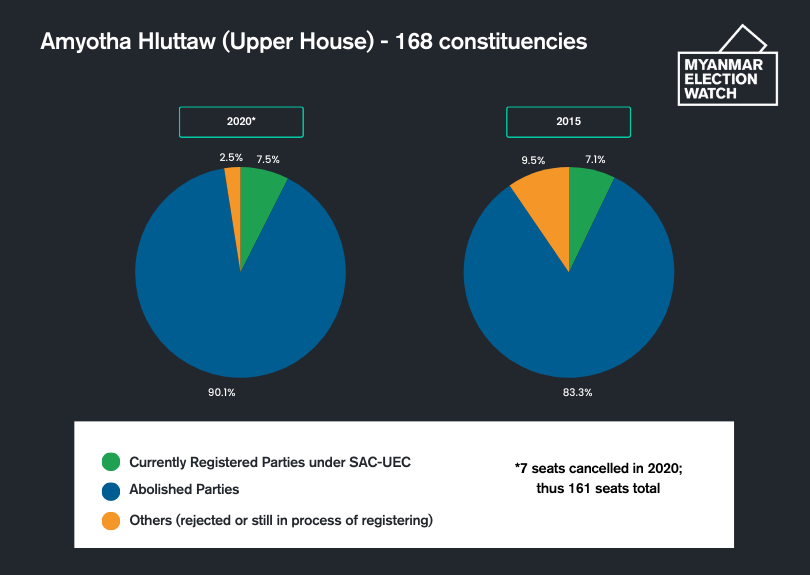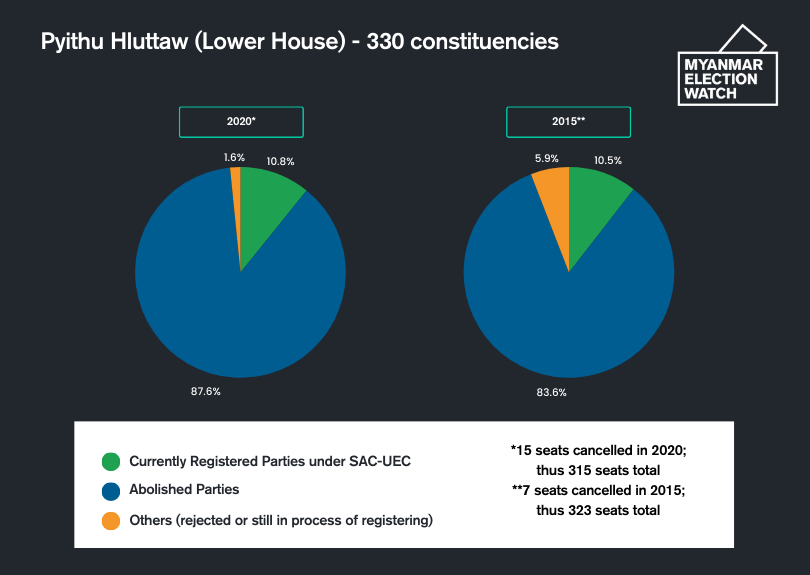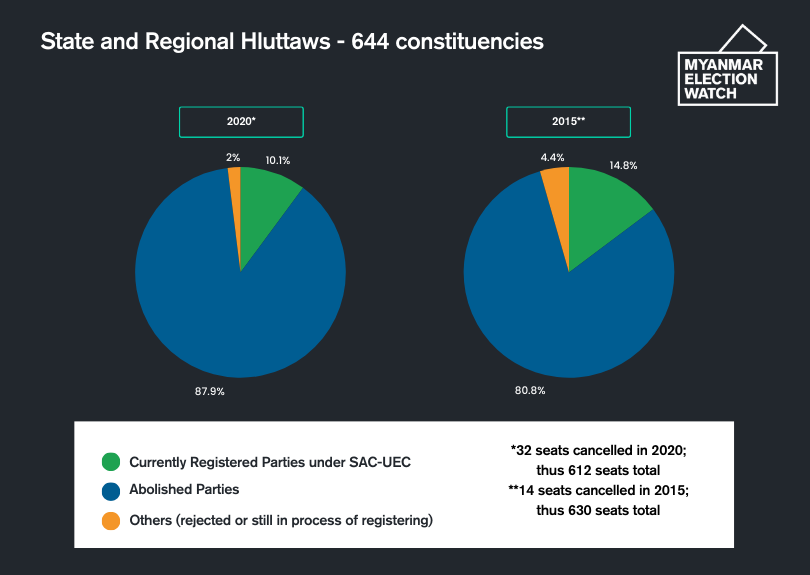DISCLAIMER: THE DATA USED IN THIS ANALYSIS IS ACCURATE AS OF December 11, 2024. ANY RELEVANT CHANGES WILL BE PROMPTLY UPDATED.

(A previous version of this brief is available HERE, with the data accurate as of June 1, 2024.)
Following the attempted military coup in February 2021, the junta-appointed Union Election Commission (UEC) abolished numerous major political parties that previously secured overwhelming majorities in the 2015 and 2020 general elections. These parties include the National League for Democracy (NLD), Kayah State Democratic Party, Shan Nationalities League for Democracy (SNLD), and Ta’ang (Palaung) National Party. The currently registered parties under the junta-appointed UEC, in stark contrast, have historically won only a small fraction of seats, raising serious concerns about the fairness and legitimacy of upcoming elections. Such parties involve the Union Solidarity and Development Party (USDP), Arakan Front Party (AFP), Pa-O National Organization, and Wa National Party.
Despite widespread international condemnation, countries such as China, India, and Russia have supported the junta's electoral exercise that still has not been given a time and date amid the junta's constant extension of the state of emergency. As the international community grapples with how to respond, the need for a unified stance against this blatant suppression of democratic principles becomes increasingly urgent. In our analysis, we examined the historical election data from the 2015 and 2020 general elections, focusing on the seat distribution among political parties in the Amyotha Hluttaw, Pyithu Hluttaw, and State/Region Hluttaws.
The pie charts for the Amyotha Hluttaw (Upper House) elections in Myanmar show a stark contrast between the performance of currently registered parties and abolished parties in both 2015 and 2020. In the 2020 general elections, currently registered parties secured only 7.5% of the seats, while abolished parties dominated with 90.1%. Similarly, in 2015, the currently registered parties won a mere 7.1%, compared to the abolished parties' 83.3%. These figures highlight the significant impact of the junta's decision to abolish major opposition parties and effectively sideline them.
The pie charts for the Pyithu Hluttaw (Lower House) elections illustrate yet another significant disparity in seat allocation between currently registered and abolished parties in 2015 and 2020. In the 2020 elections, currently registered parties captured just 10.8% of the seats, while abolished parties secured a dominant 87.6%. Similarly, the 2015 elections saw currently registered parties winning only 10.5% of the seats, compared to the abolished parties' 83.6%.
The data for the State and Regional Hluttaws elections reveal a similar pattern. In the 2020 elections, these parties obtained only 10.1% of the seats, while abolished parties dominated with 87.9%. In 2015, the trend was similar, with currently registered parties securing 14.8% and abolished parties taking 80.8%.
The data from the Amyotha Hluttaw, Pyithu Hluttaw, and State and Regional Hluttaws elections paint a clear picture of political manipulation and suppression by Myanmar's junta. By abolishing the major opposition parties that consistently secured the majority of seats in previous elections, the junta has effectively marginalized the most popular opposition. The currently registered parties, which now dominate the political landscape engineered by the junta, have historically performed poorly, winning only a small fraction of the seats. This strategic dismantling of dominant parties undermines the democratic process and concentrates power within a narrow, junta-approved political spectrum. The move raises significant concerns about the fairness and legitimacy of future elections and the genuine representation of the will of the people of Myanmar. The disenfranchisement of major political parties not only erodes democratic principles but also risks further destabilizing the nation, as the suppressed voices of the majority seek alternative avenues for expression and political engagement.
A broad international rejection of the election would send a powerful message that the global community does not condone the junta's tactics of political suppression and manipulation. Countries that support the election, like China, India, and Russia, often do so for strategic interests, but this stance can lead to long-term instability in Myanmar, which ultimately affects the entire region. The international community can help ensure that Myanmar's political future is determined by free and fair elections, reflecting the true will of its citizens. Moreover, unified global condemnation can empower local opposition and civil society groups, giving them the backing they need to continue their fight for democracy.



